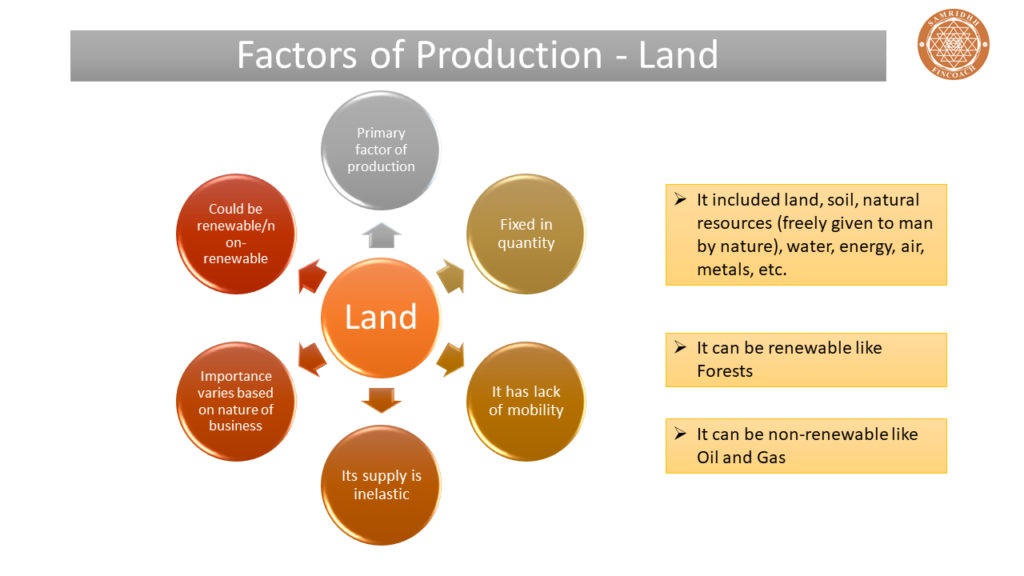
Meaning and Background
Background - Normally by land we mean the land mass. The area or space where we construct houses, buildings, factories, offices etc. But in economics it has much wider meaning
Land includes all the natural resources given to mankind freely by nature. Examples - Water, energy, air, metals, land(in traditional sense), etc. These resources can be renewable as well as non-renewable depending upon their ability for replenishment. Examples of renewable resources are forests and for non-renewable resources are oil and gas
Characteristics of Land as a factor of production
Land is fixed in quantity. In science there is an established principle that "Matter can neither be created nor be destroyed". So the natural resources that nature has given us also cannot be increased/decreased by us. When we do production then we merely change the form. We do not create anything new. So the supply of land as a factor of production is fixed.
Land has lack of mobility. So these have very limited mobility. You cannot take a piece of land from one place to another. You cannot take ocean from one place to another. River water can be taken to other places but it needs huge investment and time so it too has limited mobility.
The supply of land is inelastic. Since the quantity is fixed as discussed above so the supply of this factor of production cannot be changed with the change in demand.
This could be renewable as in case of forests and non renewable as in case of oil and gas
